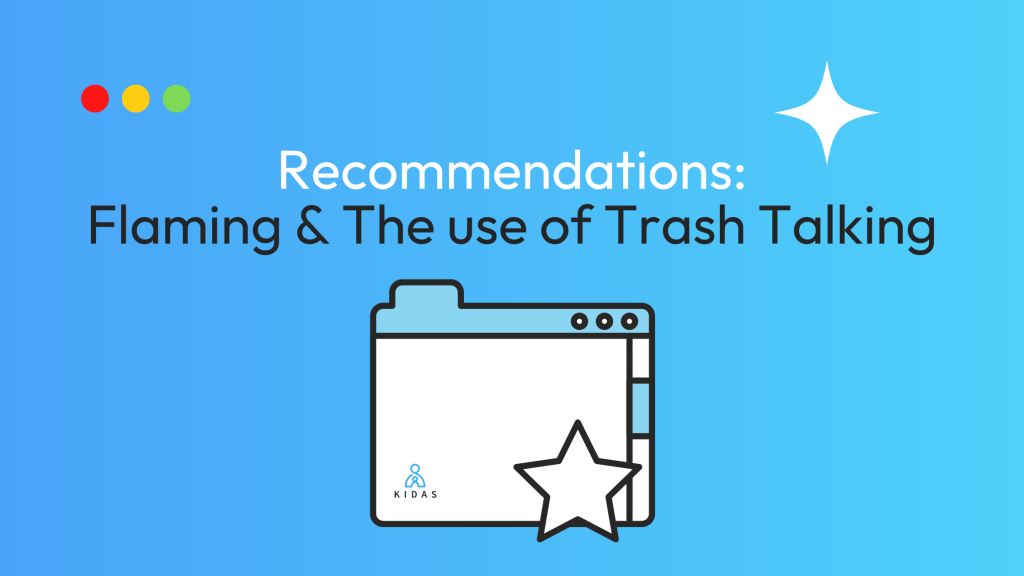The child express it 2nd notification.

Tips for Conversation
1. Let your child know that the KIDAS program reported another incident of trash-talking in their game.
2. Explain why you’re concerned about this.Tell them that you know kids are using trash talk in video games, but if the software is repeatedly alerting you about your child should be aware that their comments can create an unpleasant atmosphere in the game.
You can also use our tips for conversion about trash talk:
- Talk with your child about “the line” between playful and mean trash talk. “YOU SUCK!” is an insult and doesn’t sound playful. “Is that all you’ve got?” would be a little better. Role play with your child or teen. They will think you’re silly, but that’s ok! You can laugh together while you make a strong point about your expectations.
- Kids whose confidence is lower may use put-downs to feel better about themselves or elevate themselves. If that’s the case with your child, let them know quiet success in the game is “a better look” than acting verbally aggressive. Compliment their growing skills and tell them to focus their energy on getting even better at the game.
- Sometimes trash-talking can be the result of a child’s low tolerance for frustration–kids who get easily frustrated may yell at opponents or their team. Building better frustration tolerance takes time and may require help from a therapist–especially if your child struggles with this issue both in and outside of video gaming. To work on this issue at home, develop an incentive system for your child where they earn points or privileges each time you see them using calming-down strategies instead of yelling or melting down.
Recommendations written by Kidas Experts.